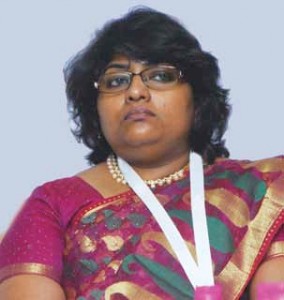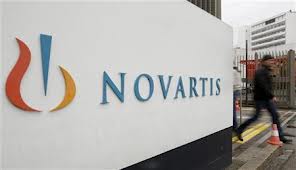 Dr Annie Stanley Thakore, Hospital Administrator, CARE Hospitals
Dr Annie Stanley Thakore, Hospital Administrator, CARE Hospitals
What were the key challenges that your hospital faced in IT implementation in the year 2012?

The health system is some way behind other industries in the adoption and application of Information and communication technologies (ICTs). In general, the situation seems to be one of relatively slow progress through the evolving computing paradigms of functional computing, enterprise computing and network computing. The healthcare sectors fragmented constituencies and complex transactions present a major barrier, making the application of ICT enabled information management systems extremely difficult to the end user which can only be overcome by adequate and proper training.
What are the prospects of growth for ICT implementation in Indian healthcare in 2013?
ICT has the potential to enable practitioners and consumers to gain rapid access to essential and up-to-date information about individual patients, their conditions and management choices, thereby supporting decision-making for both practitioners and patients.

Are there some specific segments of the healthcare sector that are likely to witness a larger demand for ICT adoption?
There is an enormous range of opportunities for significant cost reductions, service enhancements and behavioral change through what is often broadly referred to as e-Health. All the four segments namely “ payers, providers, practitioners and patients “ shall be benefitting from ICT adoption.
The major impact of ICTs on payers will be the ability to manage the system in order to better account for expenditures, to manage the flow of funds and contain costs. Electronic scheduling and patient management systems could improve scheduling of tests and procedures, and thereby reduce the length of hospital stays and reduce the need for multiple visits. Linking insurers, healthcare providers, financial institutions and consumers into claiming and payments systems also has the potential to reduce significantly administrative costs and improve quality of service, hence benefiting service providers. From the perspective of medical practitioners, knowledge enrichment or education, practice administration, and clinical tools are among the most important ICT applications.
Talking about hospital management, how do you foresee the role of ICT growing in 2013?
Technology will increasingly be deployed right next to clinical care and the patient in a number of ways. Using biometrics, Radio Frequency Identification (RFID) and barcode to establish patient identity before treatment administration. Bedsides, clinical information displays to keep patients engaged in their own care. Computer navigation via integration of a multitude of medical imaging data sets through real-time display of anatomy during surgery.
This will be taken further via telemedicine, head up displays and haptics feedback technologies. Knowledge bases will increasingly be deployed to bring about best evidence-based healthcare. Evidence-based driven guidelines will bring about rule-based diagnosis and treatment.
What are the top technologies in healthcare that will play crucial role in the year 2013 and beyond?
IT will re-define healthcare. Most of us are moving towards an electronic health record (EHR) system that unifies patient records. But the new-era EHR will provide the clinician with systems that could dispense the course of action through analysis of the past history and assessment of the present health issue. Doctors should be able to focus on making real decisions that require human judgment aided by IT. Standards such as the ICD-10 and Snomed will be used pervasively, and clinicians will become familiar with codifying diagnoses and procedures since the language of healthcare will be universal. This provides for great opportunities for the globalisation of healthcare where records could also be retrieved from a foreign country where the patient seeks treatment. Common standards and
terminology will make this possible.
Be a part of Elets Collaborative Initiatives. Join Us for Upcoming Events and explore business opportunities. Like us on Facebook , connect with us on LinkedIn and follow us on Twitter , Instagram.












